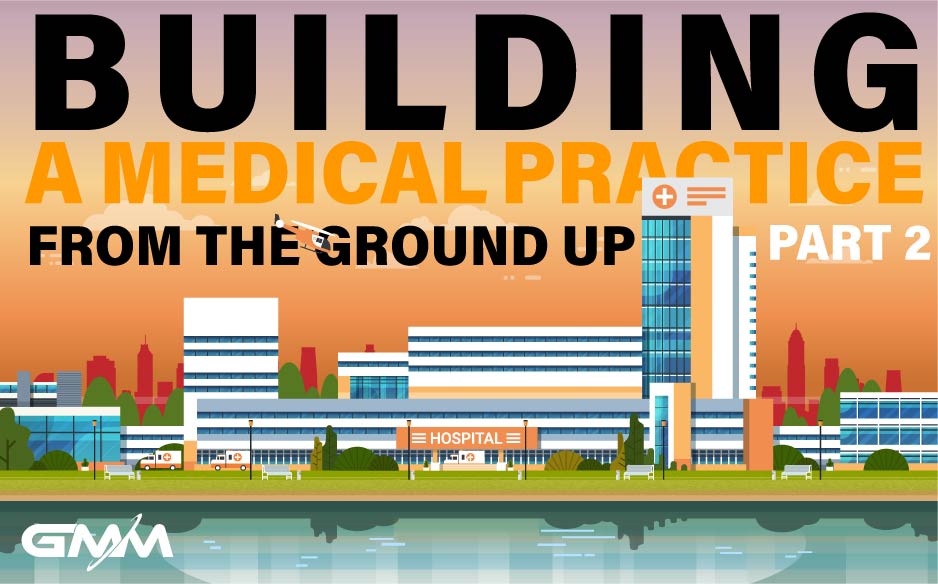Now that you have decide on the type of practice, obtained financing, began all the legal compliance processes, and leased a facility, it is time to build the core of your business. In Part 2 of “Building a Medical Practice from the Ground Up”, we will discuss the remaining steps.
Steps to Begin a Medical Practice
- Type of Practice
- Financing
- Legal Compliance
- Facility and Furnishings
- Staffing
- Equipment
- Marketing and Opening
- Professional Consultants
Staffing
The most important step in establishing a medical practice is the staffing. You want staff you can work with comfortably, that makes a great team, and that provides quality services for your patients. The first step in staffing is obtaining quality background check services. Medical practices must consider not only employment history and criminal records, but they must also ensure their staff are properly credentialed with all required licenses and certifications. You will need to decide if you want a nurse, a PA, etc. Hire an experienced front office manager who can help you set up and oversee the day-to-day operations of your practice. You may consider contracting with some professional firms to handle things like accounting and billing, and a consultant to review your operations periodically.
Marketing and Opening
You must have a well-developed marketing plan to build a successful practice and attract patients. Work with a marketing firm that is experienced in medical practice marketing, like Citryn Marketing. Develop partnerships with other practices for referral purposes. Marketing will not end with your grand opening; it is an ongoing process to ensure you continue to grow your practice. Your marketing firm can develop and maintain your website and social media presence that not only attracts new patients but helps you to build a positive reputation.
Equipment
Having the proper equipment will be crucial to your practice. Depending on your specialty, you will need a variety of medical equipment for your practice, and you can consider purchasing second-hand equipment, where possible, to reduce costs. You will need a variety of operational systems, and you will want to review your options to spend your money wisely. You will want an all-inclusive Electronic Health Record (EHR) system that includes digital patient records; communicates with other providers for lab work, specialty referrals, etc.; provides revenue cycle information; provides a patient portal for communication and transparency; and allows for personalization, see Improving EHR Usability.
You will want to ensure your EHR system offers a practice management component or integrates to prevent duplication of records. This will be used for monitoring your billing and revenue cycle, submission of insurance claims, and all front-office operations. Outsourcing your billing is a serious consideration to reduce the burden of bill collecting from your staff. Voice recognition software for medical transcribing can also be integrated into the EHR system. Your credit card processing system should be one that provides additional security to protect patient data and participates with the American Medical Association’s Member Value Program which offers discounts and perks to medical practitioners through a variety of partners. You will want to ensure all your systems meet HIPAA regulations and security standards to protect patient data.
When approaching banks, be sure to reach out to their medical/dental divisions so you are working with someone who understands the expense and revenue models of medical practices. Approach at least 5 to 10 different banks and review your different offers carefully for terms that fit your needs.
Professional Consultants
There are a variety of consultants you will want to retain to ensure your ongoing success. Experienced consultants can help to ensure you stay compliant with all changing regulations, regularly make effective improvements to your operations, and keep you legally and financially protected. Some consultants you will want to retain include a business coach, attorney, CPA, marketing firm, insurance agent, financial planner, and investment advisor.
Genesis Medical Management helps medical organizations to thrive in this highly competitive industry. Contact us today to help you with operational management, growth strategies, revenue cycle, and real estate development.
Let's Grow Together!
We look forward to learning about your healthcare business to discover how GMM can create a profitable solution!

